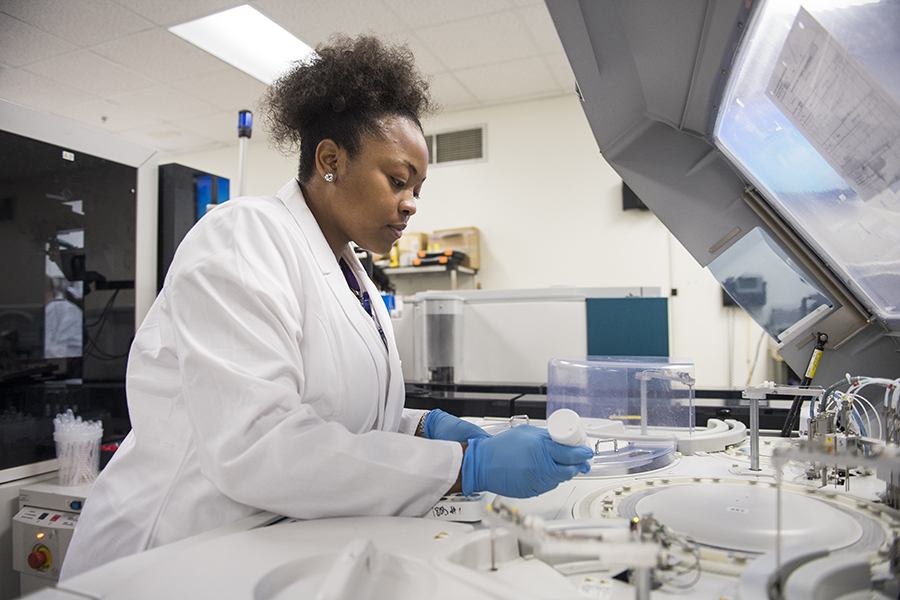Clinical Laboratory Scientists, also known as medical laboratory scientists and medical technologists, are credentialed health professionals who are a vital part of the health care team.
Clinical laboratory scientists perform laboratory tests to diagnose and treat disease and maintain health. In hospital settings, they analyze blood, tissues, and body fluids to detect disease. They work with sophisticated computerized equipment such as automated chemistry and hematology analyzers, GLC-Mass spectrophotometers, and thermal cyclers for molecular testing. Clinical laboratory scientists develop and evaluate new procedures, maintain quality assurance, educate health care professionals, and manage the laboratory.

Clinical Laboratory Scientists:
The Clinical Laboratory Science (CLS) program at Augusta University is accredited through the National Accrediting Agency for Clinical Laboratory Science (NAACLS). The address for NAACLS is 5600 N. River Rd. Suite 720 Rosemont, IL 60018-5119. The phone number for NAACLS is (773) 714-8880. The program is currently accredited through October 31, 2030.
NAACLS requires accredited programs to openly communicate to the public the following outcomes measures:
| FY 2021 | FY 2022 | FY 2023 | |
| ASCP BOC Overall Pass Rate* | 85% | 78% | 70% (so far)**** |
| Graduation Placement Rate** | 100% | 100% | 100% |
| Graduation Rate*** | 100% | 100% | 100% |
*Defined as the percentage of those students passing exam within one (1) year of graduation or continuing their education.
**Defined as the number of students who were employed within one (1) year post graduation.
***Defined as the number of students entering the second half of the program and went on to graduate.
****BS-CLS cohort (16 students, four semester curriculum) graduated in December 2022 had until December 2023 to sit for the ASCP-BOC Exam. 14 students sat for the exam, seven passed on the first attempt and two passed on the second attempt. Four of the five remaining students did not retake the exam again within a year of graduation. One student, who was on an extended five semester curriculum, is still eligible to take the exam until May 2024. MHS-CLS Cohort (13 students, 5 semester curriculum) graduated in May of 2023 and have until May of 2024 to pass the ASCP-BOC exam. All 13 students sat for the exam. Seven students passed on the first attempt and three on the second attempt. Three remaining students have until May 2024 to pass the exam. For both cohorts for 2023, 19 out of 27 or 70% or students have passed the exam thus far.
Job opportunities for clinical laboratory scientists are excellent, with more openings than available job seekers. Employment is expected to grow at a faster than average rate. United States Department of Labor, Bureau of Labor Statistics, Occupational Outlook Handbook)